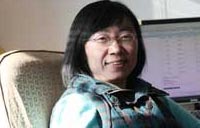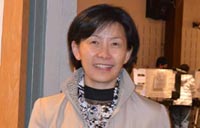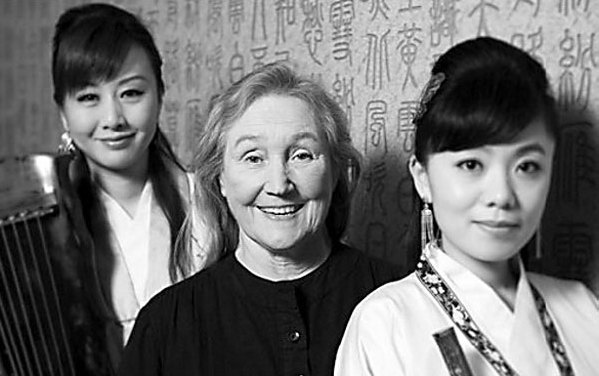Timeless tunes
|
Lindqvist with Deng Hong (left) and Chen Shasha, two Chinese musicians who perform for guqin concerts curated by Lindqvist. Provided to China Daily |
 |
| 'Clothesline' shock leads to meteorology career |
 |
| A visionary rooted in service |
But it's not just another exotic instrument.
There are no scales or etudes to get used to. One starts with one of 100 tunes that still exist. One has to take a bath before playing. There are rarely any chords. The scores have no marked tempo.The essence is the mentality, the ideals of noble characters and graceful bearing. It's the expression of upper-class scholars.
Lindqvist says Wang taught her that " (Guqin) music is a way to get your heart to open and connect with nature". She says Wang "felt sorry" about the stringent and practical Western ways.
"I began to understand that this is something else," Lindqvist says. "It's for your inner peace, it's for all the things in life and nature."
Before they sat down to play, Wang would tell the stories, temperaments and scholarly manners behind the tune. Guqin was traditionally played by scholars in ancient times to express themselves. Most renowned guqin tunes have been handed down through the generations. To play them as the original composer intended, it is important to know the mood, feeling and history behind the music.
Lindqvist would continue to tell the stories of the guqin all over the world.
As the first and only student at the research center, the master guqin players banded together to present her with a one-of-a-kind farewell gift, a live recording of some 20 tunes played by the masters (among them Guan Pinghu, Zha Fuxi and Fu Xuezhai, whose music was sent to space on the Voyager) so that she wouldn't forget.
When she returned home to teach (she has been teaching literature, history and Chinese, incorporating the latter into the Swedish school system in 1971), she played the disc to her art history students until she lost it. The disc was found last year, and was included in Qin.
The book, which she spent 15 years researching, was a tribute to her teachers.
It was also a document for future generations. "When I wrote the book (in the 1990s) I was absolutely sure guqin will never survive, because nobody was studying it," she says.
Now, she has changed her mind and is convinced the instrument will last. Not only because it became a World Intangible Cultural Heritage item and many others like her are actively promoting the art worldwide, but also because it has a staying power that withstands the test of time.
For more My China Dream stories, click here

















